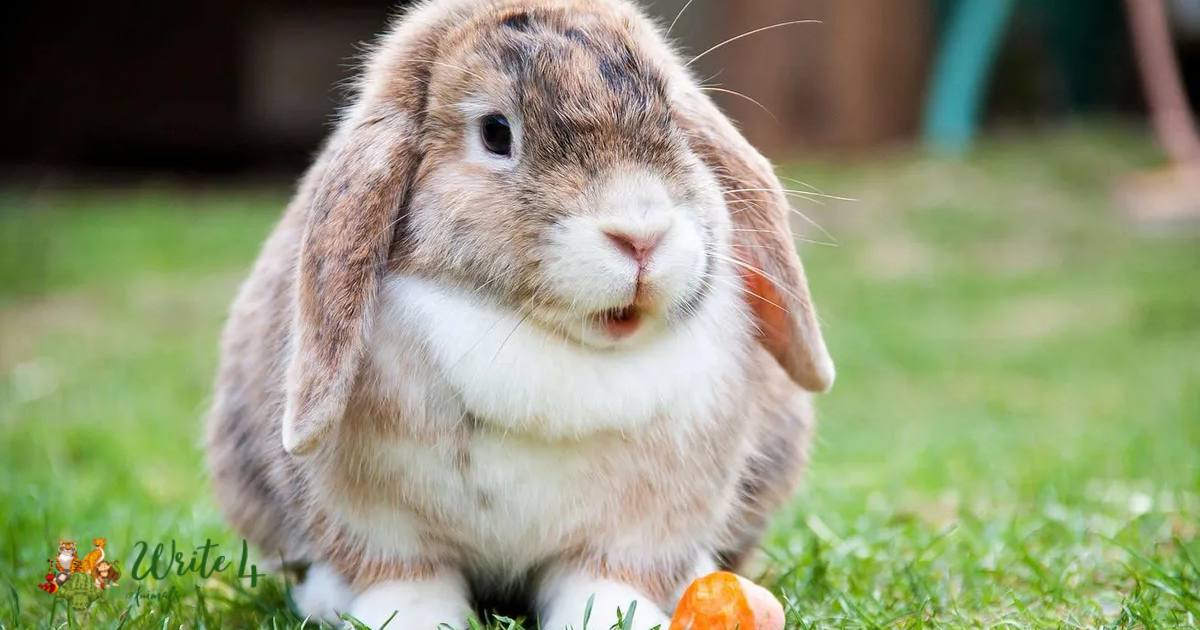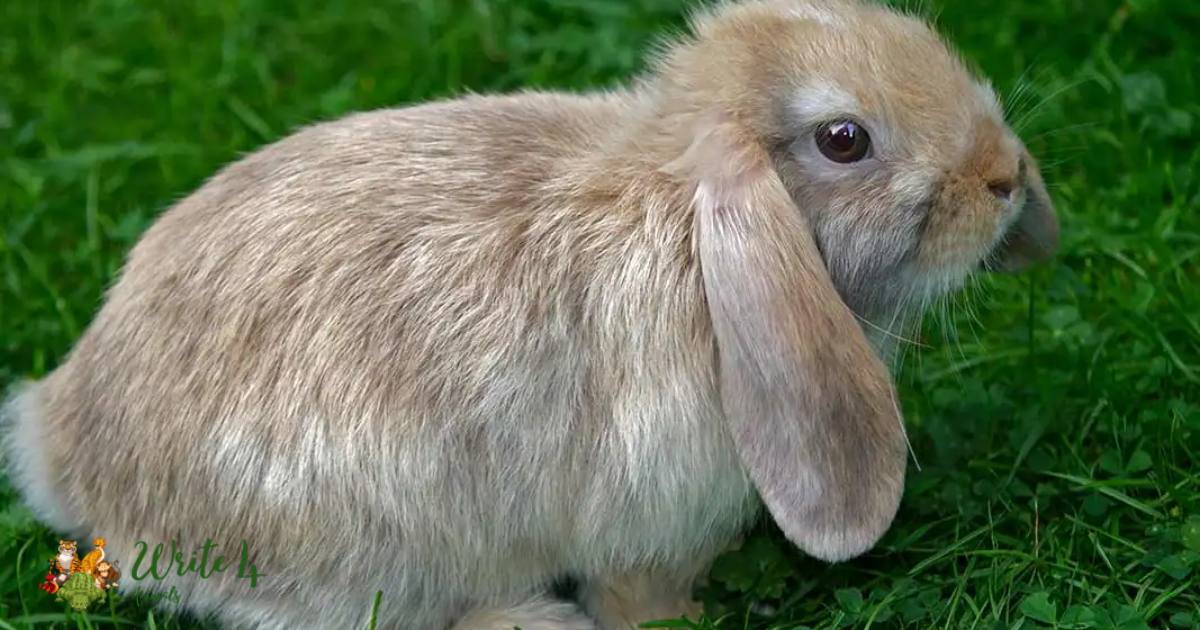Rabbits are often cherished as adorable and affectionate companions, but like all creatures, they can face health challenges, including genetic conditions.
Down syndrome, a chromosomal disorder commonly known in humans, is a topic of discussion within the rabbit community. While it’s not as prevalent as in humans, some rabbits may exhibit symptoms akin to Down syndrome.
In this comprehensive guide, we’ll explore what is known about Rabbit with Down syndrome, dispel myths, highlight realities, and discuss how to provide the best care for these special animals.
About Rabbit with Down syndrome
Understanding Down Syndrome in Rabbits
Down syndrome, a chromosomal disorder well-known in humans, is characterized by an additional copy of chromosome 21, resulting in a spectrum of physical and intellectual disabilities.
In rabbits, while not a direct replication, there are observed similarities in certain physical and behavioral traits. However, it’s imperative to acknowledge the scarcity of research on this topic, with much of the knowledge derived from anecdotal evidence within the rabbit community.
Consequently, understanding the condition in rabbits remains a challenge, underscoring the need for further scientific exploration to elucidate the underlying genetic mechanisms and provide comprehensive insights into the management and care of Rabbit with Down syndrome-like conditions.
Symptoms and Characteristics
Rabbits suspected of having Down syndrome may display a range of symptoms and characteristics, including:
Distinct facial features: Some Rabbit with Down syndrome- like conditions may have a rounder face, smaller ears, and eyes that appear further apart than usual.
Developmental delays: These rabbits might experience delays in physical and cognitive development, such as slower growth, delayed milestones, and reduced coordination.
Behavioral differences: They may exhibit unique behaviors, such as increased timidity or aggression, difficulty learning, or socializing.
Health issues: Rabbit with Down syndrome may be more prone to certain health problems, such as dental issues, respiratory problems, and digestive issues.
Dispelling Myths About Rabbit with Down syndrome
Unfortunately, misconceptions about Rabbit with Down syndrome abound. It’s crucial to dispel these myths to ensure these animals receive the care and understanding they deserve.
1. Myth: Rabbit with Down syndrome are unmanageable or aggressive.
Reality: While rabbits with special needs may require extra attention and care, they can still lead fulfilling lives with proper support and understanding. Aggression or behavioral issues are not inherent to Down syndrome but may arise due to stress or discomfort.
2. Myth: Rabbit with Down syndrome cannot bond with humans or other animals.
Reality: With patience and understanding, Rabbit with Down syndrome can form strong bonds with their human caregivers and other pets. Socialization and positive reinforcement can help foster these relationships.
3. Myth: Rabbit with Down syndrome are always unhealthy and short-lived.
Reality: While rabbits with genetic conditions may be more susceptible to certain health issues, they can still enjoy a good quality of life with appropriate veterinary care and a nurturing environment. With proper management, some Rabbit with Down syndrome can live relatively long and happy lives.
Providing Care for Rabbit with Down syndrome
Caring for a rabbit with Down syndrome requires dedication, patience, and knowledge. Here are some tips for providing the best care possible:

Veterinary Care: Regular check-ups with a knowledgeable veterinarian are essential to monitor the rabbit’s health and address any emerging issues promptly.
Specialized Diet: Rabbit with Down syndrome may have specific dietary requirements, such as softer foods or additional nutrients. Consult with a veterinarian to create a diet plan tailored to your rabbit’s needs.
Enrichment and Socialization: Provide plenty of opportunities for mental stimulation and social interaction. Toys, tunnels, and supervised playtime can help keep your rabbit engaged and happy.
Safe Environment: Create a safe and comfortable living space for your rabbit, with plenty of room to move around and explore. Remove any potential hazards, such as wires or toxic plants, to prevent accidents.
Patience and Understanding: Understand that Rabbit with Down syndrome may have unique needs and behaviors. Approach interactions with patience, empathy, and positive reinforcement.
Conclusion
Rabbit with Down syndrome, while relatively rare, deserve the same love, care, and respect as any other animal. By understanding their condition, dispelling myths, and providing appropriate care, we can ensure that these special rabbits lead happy, fulfilling lives. With patience, dedication, and a supportive community, we can make a positive difference in the lives of these remarkable animals.
Frequently Asked Questions
What is Down syndrome in rabbits?
Down syndrome in rabbits is a term used to describe a condition that shares some similarities with Down syndrome in humans. It is characterized by certain physical and developmental traits that may indicate a chromosomal abnormality, though the specific genetic mechanisms involved may differ from those in humans.
How common is Down syndrome in rabbits?
Down syndrome-like conditions in rabbits are relatively rare. While there are anecdotal reports of rabbits exhibiting characteristics akin to Down syndrome, there is limited scientific research on the prevalence of such conditions in rabbits.
What are the signs and symptoms of Down syndrome in rabbits?
Signs and symptoms of Down syndrome-like conditions in rabbits may include distinct facial features (such as a rounder face, smaller ears, and widely spaced eyes), developmental delays, behavioral differences, and increased susceptibility to certain health issues.
Can Rabbit with Down syndrome live normal lives?
With appropriate care and support, Rabbit with Down syndrome-like conditions can lead fulfilling lives. While they may have unique needs and challenges, many rabbits with special needs can thrive in loving and understanding environments.
How can I care for a rabbit with Down syndrome?
Caring for a rabbit with Down syndrome involves providing regular veterinary check-ups, a specialized diet tailored to their needs, plenty of enrichment and socialization opportunities, a safe living environment, and patience and understanding in all interactions.
Are Rabbit with Down syndrome aggressive?
Aggression is not a defining characteristic of Rabbit with Down syndrome-like conditions. However, like any rabbit, they may exhibit aggressive behaviors if they feel threatened or stressed. Providing a calm and supportive environment can help minimize stress-related behaviors.
Can Rabbit with Down syndrome bond with humans and other animals?
Yes, Rabbit with Down syndrome can form strong bonds with their human caregivers and other pets. With patience, positive reinforcement, and socialization, these rabbits can develop meaningful relationships and enjoy companionship.
What is the life expectancy of a rabbit with Down syndrome?
The life expectancy of a rabbit with Down syndrome-like conditions can vary depending on various factors, including the severity of their condition and the quality of care they receive. With proper management and veterinary support, some rabbits with special needs can live relatively long and healthy lives.
Recommended
2. 12 Animals with down syndrome | down syndrome animals
